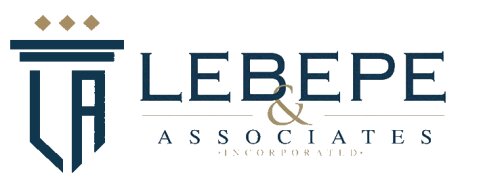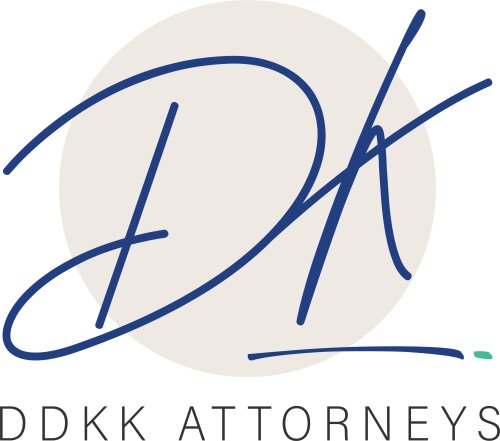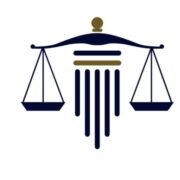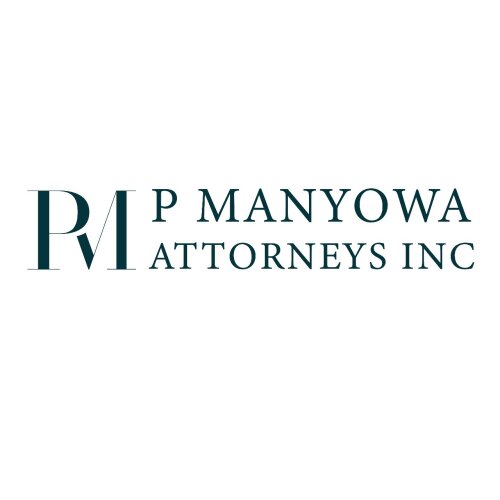Best Collaborative Law Lawyers in Polokwane
Share your needs with us, get contacted by law firms.
Free. Takes 2 min.
Free Guide to Hiring a Family Lawyer
List of the best lawyers in Polokwane, South Africa
About Collaborative Law in Polokwane, South Africa
Collaborative Law is a legal approach designed to resolve disputes amicably and efficiently outside of court. In Polokwane, South Africa, this practice is gaining traction, especially in areas like family law, where it offers a less adversarial process for parties involved in disputes. This involves a series of negotiations where parties work together with their lawyers to reach a mutually beneficial agreement. The collaborative process promotes transparency, open communication, and cooperative problem-solving, reducing hostility and preserving relationships.
Why You May Need a Lawyer
There are several circumstances where individuals might seek the expertise of a Collaborative Law attorney in Polokwane:
- Divorce or Separation: Collaborative Law offers a way to navigate the emotional and financial complexities of ending a marriage without going to court.
- Child Custody and Support: Facilitate agreements regarding children's living arrangements, education, and financial support in a non-contentious manner.
- Business Disputes: Resolve partnership disagreements or business conflict without costly litigation.
- Property Settlements: Reach joint decisions on asset division between parties.
Local Laws Overview
In Polokwane, Collaborative Law operates within the broader context of South Africa's legal framework, especially family law principles. The local emphasis is on mediation and negotiation, aligning with the national drive to decongest the courts. Essential aspects include:
- Children's Act: Supports a child's best interests focusing on parental responsibilities and rights agreements.
- Divorce Act: Encourages amicable settlement to protect relationships post-divorce.
- Mediation in Certain Divorce Matters Act: Endorses mediation to resolve family disputes.
Frequently Asked Questions
What is Collaborative Law?
Collaborative Law is a legal process that requires the parties and their attorneys to commit to resolving disputes amicably outside the court system.
How does the Collaborative Law process work?
Parties sign a participation agreement, commit to transparency and honest communication, and hold face-to-face discussions with the assistance of their lawyers to negotiate a solution that satisfies all involved.
Is Collaborative Law only limited to divorce cases?
No, while popular in divorce and family law cases, Collaborative Law can be applied to various disputes, including business and employment conflicts.
What happens if we cannot reach an agreement?
If no agreement is reached, parties can still pursue traditional litigation. However, the collaborative lawyers must withdraw from further proceedings and new legal representation must be sought.
Do I still need a lawyer in Collaborative Law?
Yes, it's essential to have a lawyer to guide you through the process, ensure your rights are protected, and help in negotiations.
How long does the process usually take?
Unlike court cases, the collaborative process is generally faster, as it is in part driven by the parties’ schedules rather than court dates.
What are the benefits of choosing Collaborative Law?
Collaborative Law is usually less stressful, more cost-effective, preserves relationships, and provides more control over the outcomes for parties involved.
Can collaborative agreements be legally enforced?
Yes, once an agreement is reached and documented, it can be made legally binding through court approval if necessary.
Is Collaborative Law confidential?
Yes, the process is confidential, promoting open communication and honesty between parties.
Can Collaborative Law be used if there's a history of domestic violence?
It depends on the circumstances. Safety and power dynamics play a crucial role, and the process may not be suitable where there’s a significant power imbalance or ongoing threat.
Additional Resources
Here are some resources and organizations in Polokwane that can provide assistance with Collaborative Law:
- The Law Society of South Africa: Offers information and referrals for legal professionals.
- South African Association of Mediators (SAAM): Provides resources for mediation processes and professionals.
- Legal Aid South Africa: Offers legal advice and representation to those who cannot afford private counsel.
Next Steps
If you believe Collaborative Law might be the right path for you, consider the following steps:
- Research: Learn more about the process to understand if it aligns with your needs.
- Consult a Lawyer: Seek initial advice from a collaborative lawyer to discuss your case and options.
- Consider Your Goals: Clearly define the outcomes you wish to achieve and share these with your lawyer.
- Prepare for Open Dialogue: Approach the process with an open mind and willingness to negotiate.
Lawzana helps you find the best lawyers and law firms in Polokwane through a curated and pre-screened list of qualified legal professionals. Our platform offers rankings and detailed profiles of attorneys and law firms, allowing you to compare based on practice areas, including Collaborative Law, experience, and client feedback.
Each profile includes a description of the firm's areas of practice, client reviews, team members and partners, year of establishment, spoken languages, office locations, contact information, social media presence, and any published articles or resources. Most firms on our platform speak English and are experienced in both local and international legal matters.
Get a quote from top-rated law firms in Polokwane, South Africa — quickly, securely, and without unnecessary hassle.
Disclaimer:
The information provided on this page is for general informational purposes only and does not constitute legal advice. While we strive to ensure the accuracy and relevance of the content, legal information may change over time, and interpretations of the law can vary. You should always consult with a qualified legal professional for advice specific to your situation.
We disclaim all liability for actions taken or not taken based on the content of this page. If you believe any information is incorrect or outdated, please contact us, and we will review and update it where appropriate.














